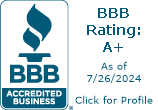Catching shoplifters is costly and dangerous according to experts, and is a that liability retailers should avoid. But loss due to shoplifting costs retailers $44 billion annually and is certainly a problem that should be addressed. Experts in the science of crime say the best course of action is to concentrate heavily on deterrence.
Criminals Assess Risk Differently
Do not expect to understand the criminal mind. Even more importantly, do not base your security strategies on what you think they are thinking– because it just won’t work. Criminals do not assess risk the same way as others and what risk they do measure is countered with whatever the perceived advantage in addition to the momentary value, which can include “the thrill of the get”. Criminologists explain that the criminal must “see, get, fear” deterrents— that is they must see them, understand what they do and fear that they work well enough to land them in jail.
Why Deterrence is So Important
Ask any retailer, catching a shoplifter is a lot more difficult than what most people may think. If you suspect a shoplifter, you must have eyes on them from beginning to end and then apprehend them at the last point of sale, or outside the building. Once confronted, the person can become violent and the situation turns dangerous. When you factor in additional costs and risks such as liability issues it is easy to see why a healthy objective would be to deter as much crime as possible in the first place.
2 Important Ways to Thwart Theft
There are two important ways to deter theft. One is by making it too difficult by the use of things like by making it difficult to take an item without notice, such as alarming displays or having the item close to store personnel. The second is by making it too risky by using things like video surveillance and CCTV and having employees make personal contact with each shopper.
These tactics may seem simplistic, but they work with human nature. Criminals know that once they are seen and that eyes are on them it is game over because they are certain to be caught.
The most effective crime deterrent is owning the crime prevention process and fully leveraging security technologies such as video surveillance and CCTV. Security Instrument has been equipping companies since 1960 and understands the retail environment.

 But research shows that there is an additional advantage of video surveillance systems in the area of business discipline.
But research shows that there is an additional advantage of video surveillance systems in the area of business discipline.